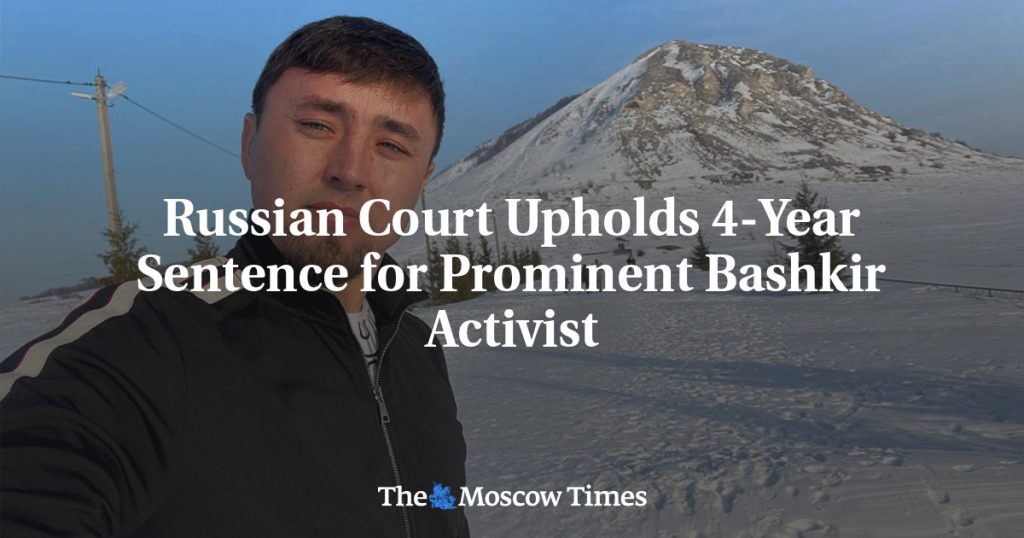The Supreme Court of Russia’s republic of Bashkortostan has upheld activist Fayil Alsynov’s prison sentence, rejecting his appeal on charges of “inciting interethnic hatred.” Alsynov, a prominent indigenous rights defender, was sentenced to four years in a penal colony in January for his role in protests against illegal gold-mining works in the republic. The court also banned him from administering websites and participating in mass gatherings for two-and-a-half years. Many believe the case against Alsynov is a government-sanctioned vendetta due to his popularity in the republic, which has sparked large protests in his support.
Following the January rallies in support of Alsynov, which were among the largest street protests in Russia since the invasion of Ukraine, there have been repressions against the participants. Alsynov attended the recent court hearing via video link from a detention center in Magnitogorsk. In a letter published by his lawyer, he called on his supporters to refrain from protesting near the Supreme Court building in Ufa. His lawyer echoed the sentiment, asking supporters not to come to the court building to avoid detention risks. Authorities have opened numerous administrative and criminal cases in connection to the protests, with protesters facing the possibility of up to eight years in prison.
There are concerns about the conditions of Alsynov’s detention and the well-being of those arrested, especially in light of escalating xenophobia following a terrorist attack in Moscow. Bashkir activists and families of the detained have launched crowdfunding campaigns to support the detainees with legal fees and basic needs. The situation has also raised worries about the treatment of political prisoners in ‘ethnic’ regions of Russia and in occupied Crimea. Even those trying to help the detained face risks, as evidenced by the closure of a showroom in Ufa by a Bashkir artist after revealing support for the protesters. Families of arrested protesters are hesitant to speak out for fear of additional harm from publicity around their cases.
The situation in Bashkortostan has garnered attention and concern from human rights watchdogs and activists, with calls for solidarity and support for the detainees and their families. The repression of activists and protesters in the region highlights broader issues of political suppression and targeting of marginalized groups in Russia. The challenges faced by those advocating for justice and human rights in Bashkortostan underscore the need for international attention and support to ensure the protection of basic rights and freedoms in the region..Support for independent journalism is crucial in shedding light on cases like Alsynov’s and the broader human rights situation in Russia.


